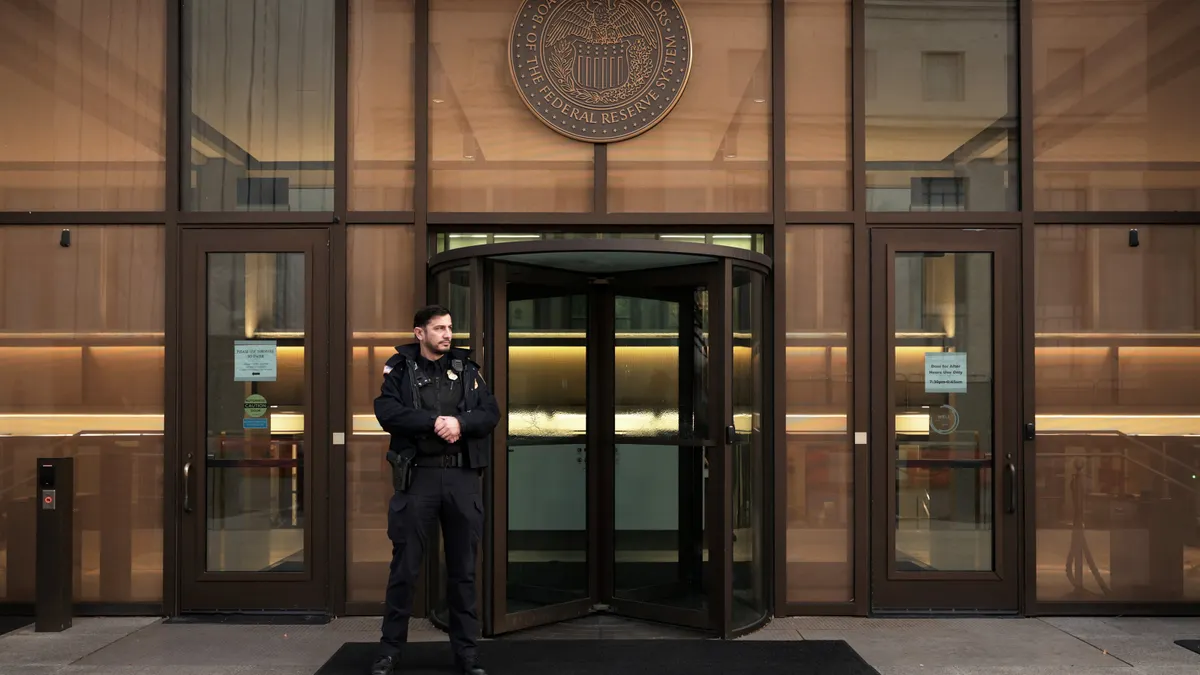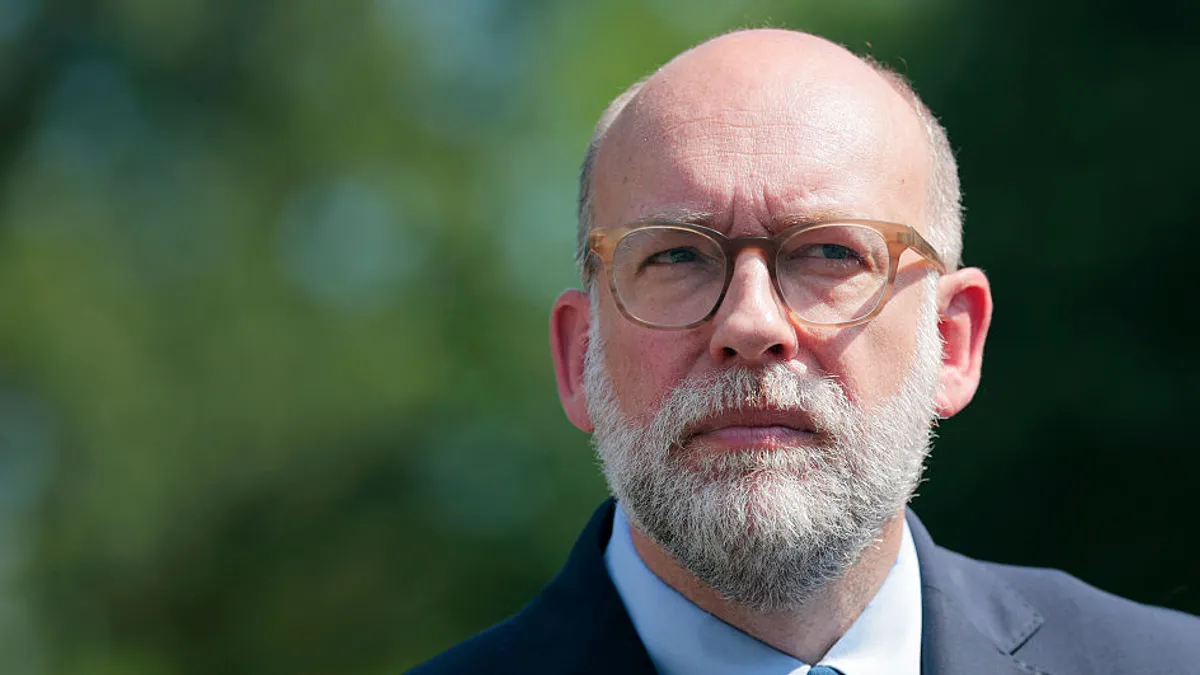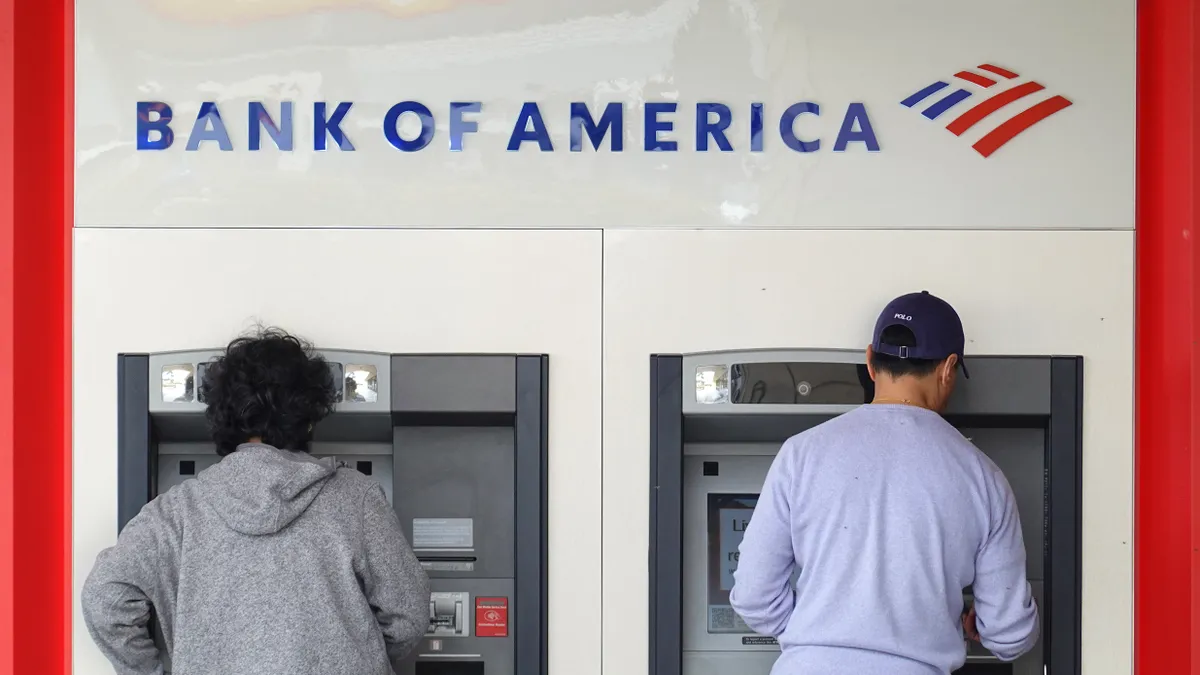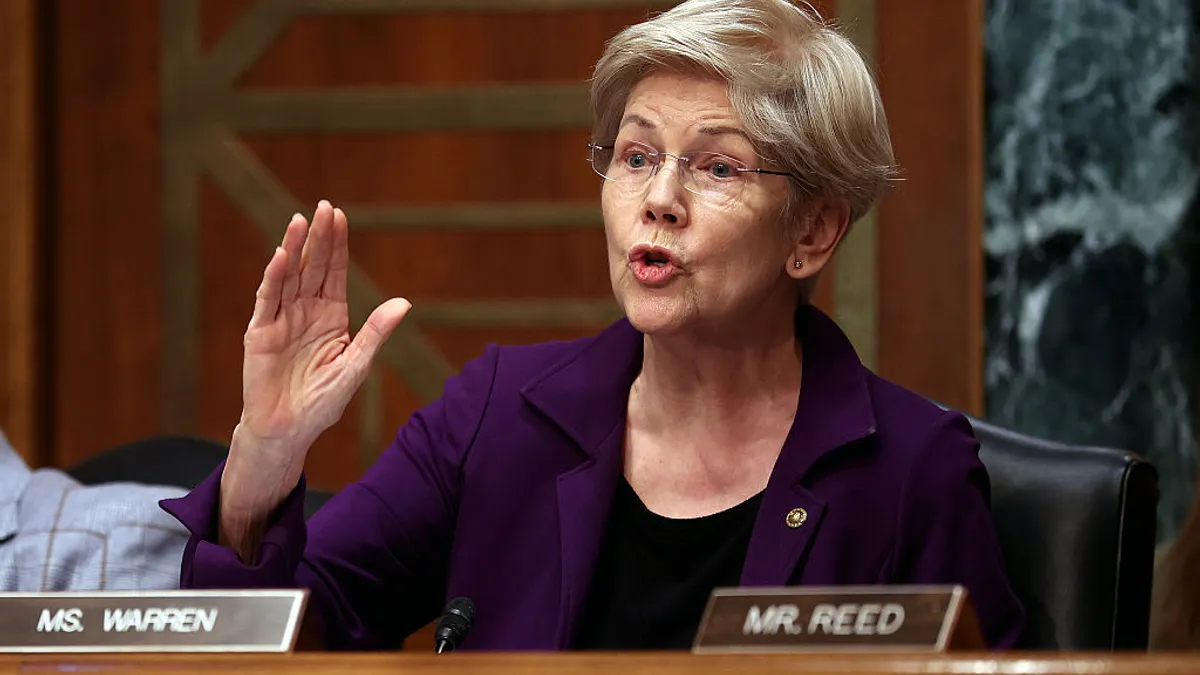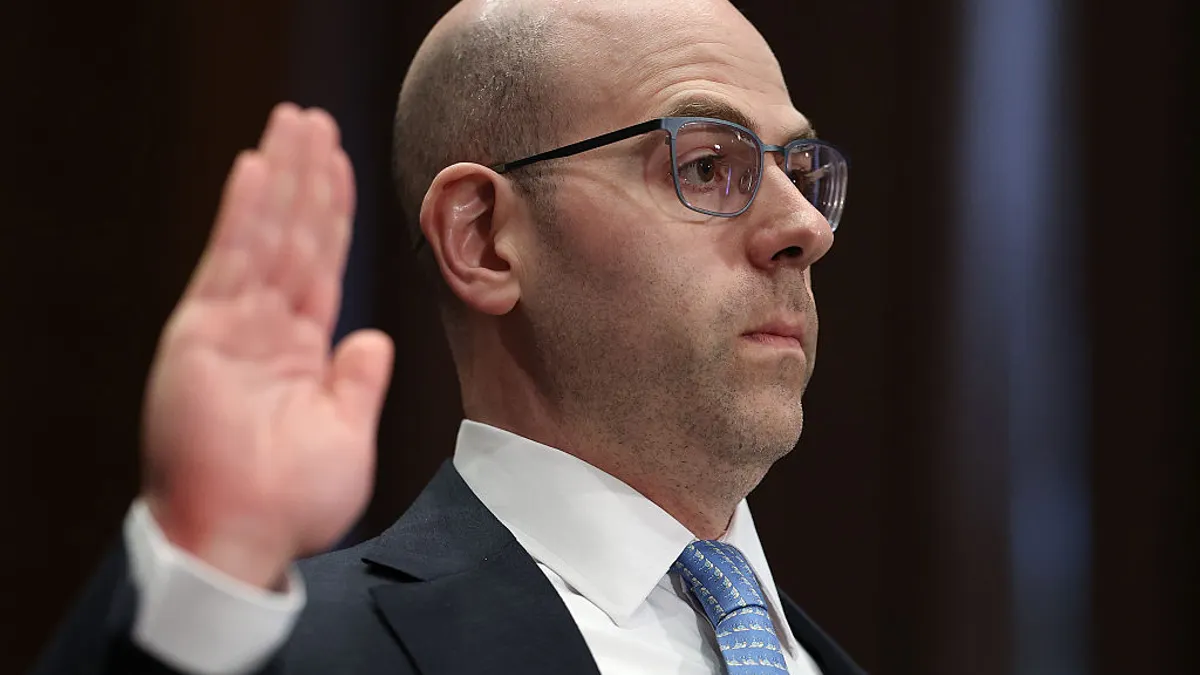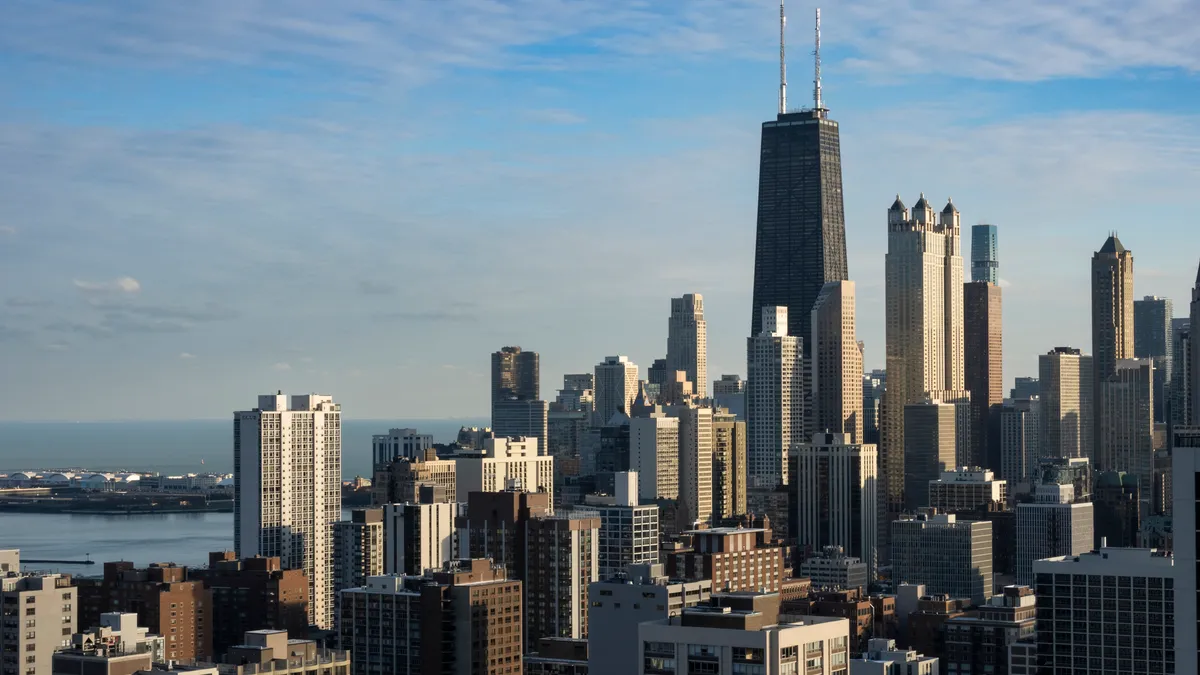The debanking discourse could have lasting consequences for bank regulators and lenders themselves, according to an academic who wants to see Congressional action to confront the forces that have contributed to the debate.
Julie Andersen Hill, dean of the law college at the University of Wyoming, warned in a paper this month that recent debanking debates “are undercutting public confidence in bank regulators and the banking system.” Debanking has become a particularly hot topic since January with the arrival of the second Trump administration.
“It is time for a more permanent fix of the conditions that allow the debanking debate to persist,” Hill wrote in the paper, set to be published in a 2026 issue of the Texas A&M Law Review. She’s also taken an interest in the rise of reputation risk and access to Federal Reserve master accounts.
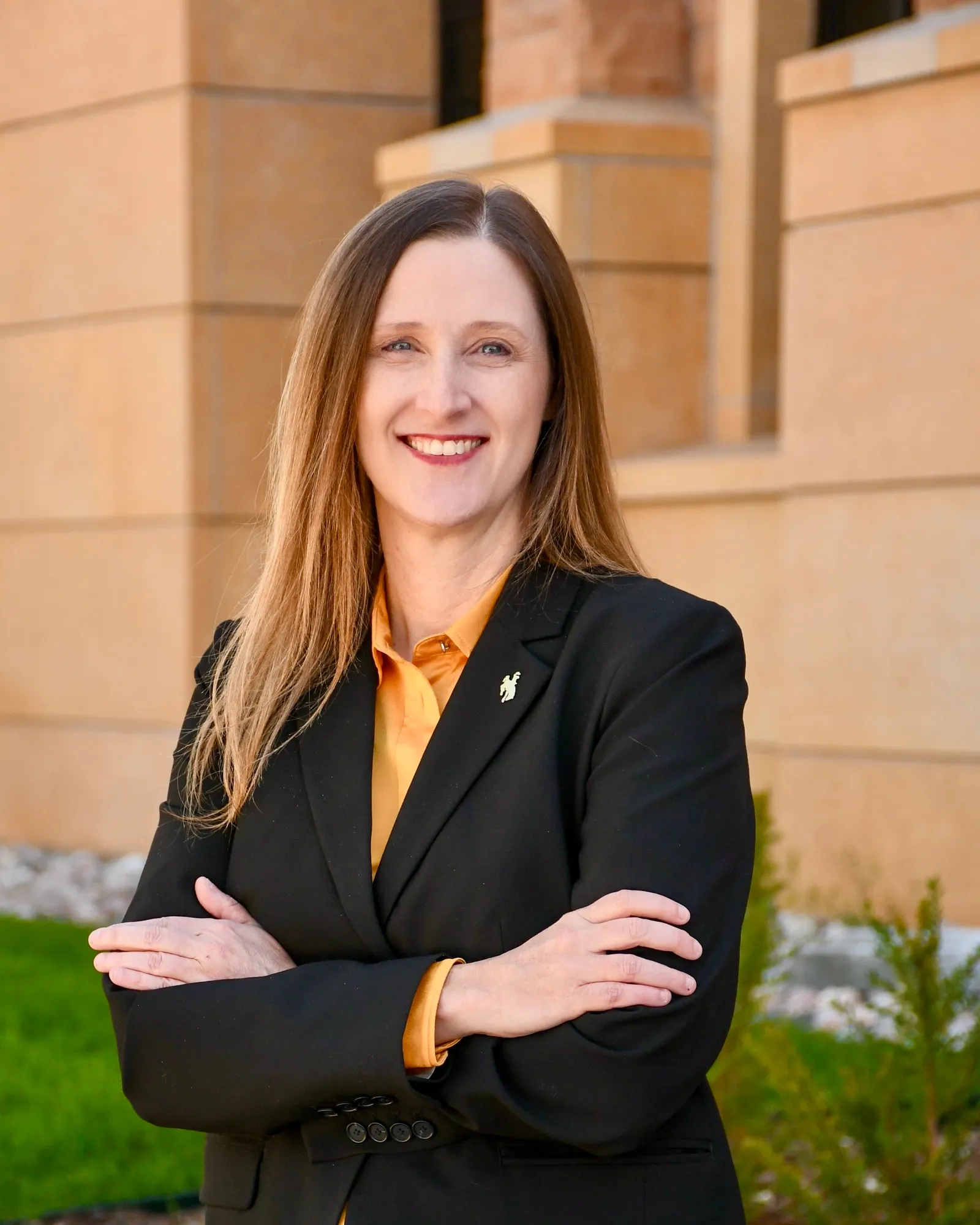
To confront the debanking issue, Hill suggested reforms that tackle both regulatory discretion and secrecy. She recommended actions related to reputation risk, anti-money laundering law reform, and limiting penalties for banks that don’t comply with regulator recommendations.
She’d also like to see Congress require regulators to share more supervisory information and banks to reveal reasons related to customer account decisions.
“Politics has its place,” Hill said in a recent interview, but “we have to be very careful that we don’t get to a point where people don’t trust regulators, because that will mean we’re to a point where people don’t trust banks, either.”
Editor’s note: This interview has been edited for clarity and brevity.
BANKING DIVE: What drew you to this topic?
JULIE ANDERSEN HILL: Broadly, my scholarly interest in bank regulation is about what I tend to call the unwritten rules of banking regulation. It’s the stuff that bankers know happens, and examiners know happens, but it’s not written down anywhere or it’s kind of obscured, and how you figure out what those rules of thumb are.
Are you encouraged by the moves already seen during this administration regarding reputational risk?
We saw similar statements from the agencies following Operation Choke Point, and every agency has a manual now that says you're not supposed to consider politics. So, yes, they should be saying that. Can we believe them and do we think this is sticky? Those are harder questions.
The Office of the Comptroller of the Currency’s manual doesn’t say, if you dislike someone’s politics, go ahead and pressure banks over that. It’s never been that some of the alleged actions were OK; it’s just that somehow we wound up here. Certainly, it’s better for the agencies to take action, to root it out, rather than to say, well, we’ll do whatever we want. Them doing something is better than them doing nothing. I don’t think it’s the end of the debanking debate. There will be something else in the future unless Congress decides to be very clear this isn’t tolerated.
Do you think your recommendations are likely to be heeded?
Addressing regulatory discretion has to come from Congress to be lasting. We’ve seen the recent executive branch action, from the president or regulatory agencies, which can make a temporary change, but it’s not a lasting change. You’ve got to have Congress willing to act, and I’m not sure we’ll see that. But it’s not entirely outside the realm of possibility.
I worry that once Congress shuts down certain avenues, there will just be new avenues for regulatory discretion. If it’s something we care about, Congress will always have to be vigilant. It’s regulatory nature to look to use all the tools you have, or a less nice way to say it is, to stretch or wring every ounce of power out of what they’ve been given. So that’s hard.
Regarding transparency – regardless of who’s in charge of an agency, administrative agencies are not inclined toward transparency. On that front, too, it has to be Congress and those outside the agencies driving the change. The inertia at agencies is to be less transparent. Maybe we’re all a little bit like this. We do our job, we think we're doing a good job and we don't particularly like people looking over our shoulders. I don’t fault supervisors on an individual level for that, but it’s not the best way to run a regulatory agency, and not in the interest of the public.
Ultimately, who do you think the onus is on here?
We need to see more from Congress, but it would be fair for the agencies to think about how they could change their culture and processes in ways that would move us away from these problems. There is work to be done at the agencies, to recognize this as a threat to the credibility of the agencies themselves, and to change the culture, so this isn’t just a recurring cycle.
What do you make of the president’s executive order related to debanking, issued earlier this month?
The concern about making banks more risky, because they’re going to feel pressure to give accounts to everybody regardless of risk – that’s not the way I read the executive order. The way I read it is that the administration was concerned about people being debanked for political reasons unrelated to risk. If what banks do in the aftermath of that is simply offer accounts to people who were debanked based on politics rather than risk, then it shouldn’t increase risk to banks.
If the reason banks were debanking individual customers was, in fact, because of risk, then I imagine what banks will do is point out the risks to their regulators. And I expect regulators will say, oh, you’re right, that’s very risky. Then, this idea of, this was just about politics, we find out that maybe that wasn’t true, because it really was about risk.
Why do you see this as a crucial issue to address?
I think it could get worse. When things have become so political, one of the outcomes is that we trust government and government actors less. That’s a problem for bank regulators because the whole reason we have them is to instill trust in the banking system, so people feel comfortable leaving their money in banks. But if people think regulators aren’t just calling balls and strikes – that they’re picking winners and losers based on politics or favor – people will distrust regulators and they will distrust banks. And that will make it harder for people to leave money in banks, it’ll make it harder for money to move through the economy.







